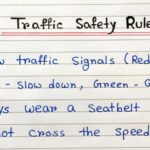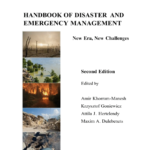Urgent Alert: Witness Natural Disasters Happening Today – Take Action Now!
Natural Disasters Happening Today: A Terrifying Reality
Introduction Paragraph
Natural disasters have become a haunting reality in today’s world. With the increasing frequency and intensity of these catastrophes, it is essential for us to understand and acknowledge the devastating impact they have on our lives. From destructive earthquakes and deadly hurricanes to raging wildfires and devastating floods, the world is experiencing the wrath of nature like never before. In this article, we will delve into the what, who, when, where, why, and how of natural disasters happening today, providing valuable insights and raising awareness about these alarming events.
2 Picture Gallery: Urgent Alert: Witness Natural Disasters Happening Today – Take Action Now!
What are Natural Disasters?

Image Source: yaleclimateconnections.org
Natural disasters refer to extreme environmental phenomena that result in significant damage to property, infrastructure, and human lives. These events are triggered by natural forces and can occur suddenly or develop over time. They include earthquakes, hurricanes, tornadoes, floods, wildfires, tsunamis, and volcanic eruptions, among others. Each disaster presents its unique set of challenges and threats, making it crucial for individuals and communities to be prepared and informed.
Who is Affected by Natural Disasters?
Natural disasters do not discriminate; they impact people from all walks of life. Whether you live in a developed city or a rural area, you are susceptible to the wrath of Mother Nature. However, it is often the most vulnerable populations, such as those living in poverty or in densely populated areas, who bear the brunt of these catastrophes. Developing countries with inadequate infrastructure and limited resources are particularly vulnerable to the devastating consequences of natural disasters.
When and Where Do Natural Disasters Occur?

Image Source: indiatvnews.com
Natural disasters can occur at any time and in any part of the world. While some regions are more prone to specific types of disasters, no place is entirely safe. Earthquakes, for instance, are more prevalent in areas along tectonic plate boundaries, such as the Pacific Ring of Fire. Hurricanes commonly affect coastal regions, particularly those in the Atlantic Ocean and the Caribbean Sea. Floods can occur in low-lying areas or regions with heavy rainfall. Understanding the geographical and climatic factors that contribute to these disasters is crucial in mitigating their impact.
Why Do Natural Disasters Happen?
Natural disasters are a result of complex interactions between geological, meteorological, and environmental factors. Earthquakes occur due to the movement of tectonic plates beneath the Earth’s surface. Hurricanes form over warm ocean waters and are fueled by the release of heat. Flooding can be caused by heavy rainfall, dam failure, or coastal storms. While these events are natural occurrences, human activities such as deforestation, urbanization, and climate change can exacerbate their frequency and intensity.
How Can We Prepare for and Mitigate Natural Disasters?
While we cannot prevent natural disasters from happening, we can take steps to minimize their impact and protect ourselves. Preparedness is key. Governments, communities, and individuals must invest in early warning systems, evacuation plans, and infrastructure that can withstand the forces of nature. Educating the public about emergency procedures and promoting resilience can save lives. Additionally, international collaboration and sharing of knowledge and resources are essential in developing strategies to mitigate the effects of natural disasters.
Frequently Asked Questions about Natural Disasters
Q: Can natural disasters be predicted?
A: While scientists have made significant advancements in detecting and monitoring natural disasters, accurately predicting their occurrence and timing remains a challenge. However, early warning systems can provide valuable time for evacuation and preparation.
Q: How long do natural disasters typically last?
A: The duration of natural disasters varies depending on the type and intensity. Some events, such as earthquakes, can last only a few seconds, while hurricanes can persist for days.
Q: Are natural disasters becoming more frequent?
A: Studies suggest that natural disasters are indeed becoming more frequent and severe. Climate change is a contributing factor to this trend, altering weather patterns and increasing the likelihood of extreme events.
Q: What should I include in my emergency kit?
A: An emergency kit should include essential items such as non-perishable food, water, a first aid kit, flashlights, batteries, a battery-powered radio, important documents, and a supply of any necessary medications.
Q: How can I contribute to disaster relief efforts?
A: Donating to reputable relief organizations, volunteering your time or skills, and spreading awareness about the importance of disaster preparedness are all ways to contribute to disaster relief efforts.
The Pros and Cons of Natural Disaster Preparedness
While investing in disaster preparedness is crucial, it is essential to consider both the benefits and challenges associated with such initiatives.
Pros:
– Increased public safety and reduced loss of life during disasters
– Faster and more efficient emergency response and recovery efforts
– Enhanced community resilience and ability to bounce back from disasters
– Potential cost savings in the long run by minimizing damages and future recovery expenditures
Cons:
– High financial costs of implementing and maintaining preparedness measures
– The challenge of reaching vulnerable populations and ensuring equal access to resources
– The need for continuous updating and improvement of preparedness strategies
– Risk of complacency and inadequate response if the perception of constant threat diminishes over time
Conclusion
Natural disasters happening today serve as a stark reminder of our planet’s immense power and the vulnerability of human life in the face of such forces. While we cannot control nature, we can strive to be better prepared, more resilient, and proactive in reducing the impact of these catastrophes. By understanding the what, who, when, where, why, and how of natural disasters, we can work towards creating safer communities and a more sustainable future. It is the responsibility of governments, individuals, and society as a whole to come together, take action, and protect our world from the devastating effects of natural disasters.
Experience the reality of natural disasters happening today. Be prepared, stay safe, and make a difference.
This post topic: Emergency Preparedness

